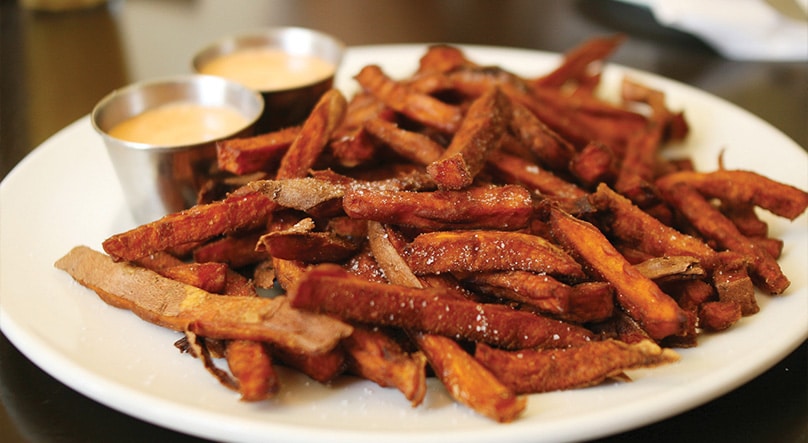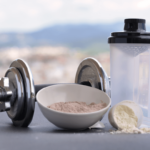Carbohydrates are integral to an athlete’s diet as they help provide the body with its primary source of energy. What seems to always be up for debate is how much of one’s diet should be made of up carbohydrates. Because we’re all different and our macronutrient needs differ based on our training volume and goals, we should measure our carb intake in grams, not as a percentage of our diet. Daily recommendations vary from as low as .5g of carbohydrate per 1lb of body mass on a non-training day to as much as 2 or 3g of carbohydrates per 1lb of body mass on high volume days. Due to the widespread mentality that carbohydrates are bad, some people struggle to meet their carbohydrate requirements, depriving their bodies of a powerful source of energy. Because the human body is an incredible machine, it gives clues to help you understand when you might need to increase your carbohydrate intake to function at max capacity.

1. You’re constantly hungry
People who don’t eat sufficient carbohydrates often find themselves feeling hungry throughout the day because they may not replace the missing carbs with other sources of energy, like healthy fats. Another reason for always feeling hungry could be that the carbs you do eat are simple (fruits and processed foods), which are made of just one or two sugar molecules and are rapidly digested by the body. This is usually why no matter how many refined carbs (potato chips or chocolate chip cookies) you eat, you feel hungry again quickly. The solution is to eat healthy carbs that are rich in fiber, which are slow to digest and provide the body with a slow-burning fuel that will have the double effect of keeping you full and providing you with a consistent source of energy throughout the day. Green vegetables like broccoli and spinach as well as starchy vegetables like sweet potato and pumpkin are good options to consider.
2. Your breath stinks
Not eating enough carbs might explain why you follow good dental hygiene habits but your breath still stinks. Without an adequate source of carbohydrates, the body will burn fat and protein for fuel through a process called ketosis. This process can cause ketone breath, where ketone bodies are expelled through respiration. And it stinks, literally. Drinking water helps dilute the concentration of ketones. If you’re on a low carb plan for a specific reason, try chewing on some fresh parsley to fight the odor naturally.
3. Your performance is suffering
If you constantly feel sluggish during workouts, consider upping your carbohydrate intake before you train. Glycogen, the stored form of carbohydrates in the body, is the first source of energy for physical activity. When the body doesn’t have enough glycogen stores it burns existing protein stores in our muscles for energy, and no one wants that. It’s also important to get carbs into your system post-workout to replenish energy and glycogen stores and can aid in tissue recovery.
One should also note that, due to the importance of carbohydrates as a source of fuel, it’s not uncommon for people on low-carb diets to feel lethargic and fatigued during the day away from the gym. You still need energy to perform basic functions and operate during the day, so make sure you’re eating enough carbs to operate at your best.
4. You’re not achieving desired fat loss
If you’re not supplying the body with fuel from carbohydrates, it will turn to your stored fat and muscle tissue for energy. If you don’t have enough glycogen or fat in your body, you may experience rapid muscle tissue loss. In addition, a loss in muscle mass volume will slow down your metabolism—this is because the more muscle you have, the more fat you burn at rest.















